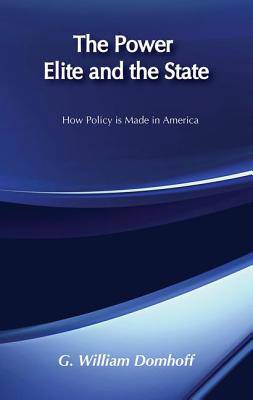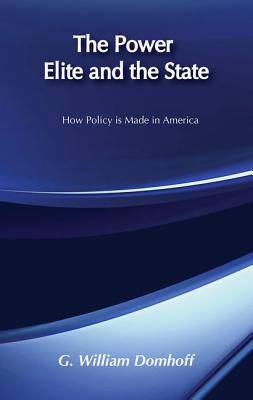
- Afhalen na 1 uur in een winkel met voorraad
- Gratis thuislevering in België vanaf € 30
- Ruim aanbod met 7 miljoen producten
- Afhalen na 1 uur in een winkel met voorraad
- Gratis thuislevering in België vanaf € 30
- Ruim aanbod met 7 miljoen producten
Zoeken
The Power Elite and the State
€ 62,45
+ 124 punten
Omschrijving
This volume presents a network of social power, indicating that theories inspired by C.Wright Mills are far more accurate views about power in America than those of Mills's opponents.Dr. Domhoff shows how and why coalitions within the power elite have involved themselves in such policy issues as the Social Security Act (1935) and the Employment Act (1946), and how the National Labor Relations Act (1935) could pass against the opposition of every major corporation. The book descri bes how experts worked closely with the power elite in shaping the plansfor a post-World War II world economic order, in good part realized during the past 30 years. Arguments are advanced that the fat cats who support the Democrats cannot be understood in terms of narrow self-interest, and that moderate conservatives dominated policy-making under Reagan.
Specificaties
Betrokkenen
- Uitgeverij:
Inhoud
- Aantal bladzijden:
- 336
- Taal:
- Engels
- Reeks:
Eigenschappen
- Productcode (EAN):
- 9780202303734
- Verschijningsdatum:
- 31/12/1990
- Uitvoering:
- Paperback
- Formaat:
- Trade paperback (VS)
- Afmetingen:
- 153 mm x 228 mm
- Gewicht:
- 462 g

Alleen bij Standaard Boekhandel
+ 124 punten op je klantenkaart van Standaard Boekhandel
Beoordelingen
We publiceren alleen reviews die voldoen aan de voorwaarden voor reviews. Bekijk onze voorwaarden voor reviews.










